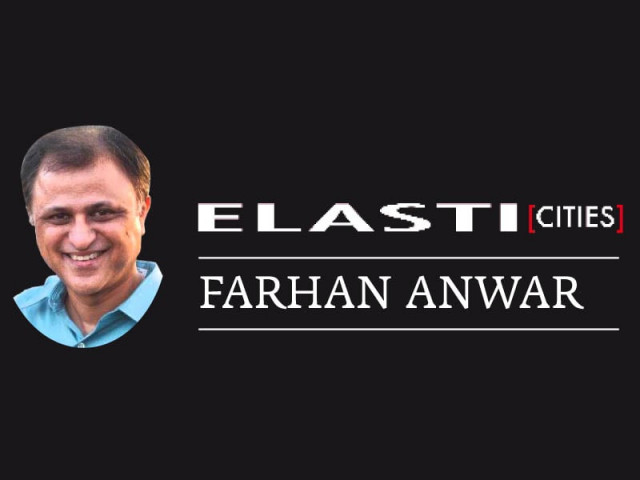Making Karachi’s governance more transparent
Though the legislation on Freedom of Information is present in Pakistan, its implementation remains questionable.

Though the legislation on Freedom of Information is present in Pakistan, its implementation remains questionable.
Sustainable and inclusive growth is not possible without 'good governance' - governance that is people-friendly, protects the interests of the weak and is transparent.
One mechanism that has been employed globally to hold governments accountable for their actions has been the enactment of 'Right to Information' (RTI) or 'Freedom of Information' (FOI) legislations. Such laws empower citizens to do a social audit of their governments and to hold them accountable. It is this very reason why they are called sunshine laws, for as sunshine is the best disinfectant, so are such laws against corruption.
Sweden was the first country to enact a freedom of information law in 1766. In South Asia, Pakistan was the first to introduce the Freedom of Information Law at the Federal level in 1997. In Pakistan, the legislation finds roots in Article 19-A of the Constitution. The article states: 'Every citizen shall have the right to have access to information in all matters of public importance subject to regulation and reasonable restrictions imposed by the law'. Today, over 95 countries have this law in one form or other.
While such legislations are now in place at the federal and provincial levels, the results on the ground are far from satisfactory. According to the 'Centre for Law and Democracy (CLD)', Pakistan's RTI ranking, as of September 28, 2012, was 74 among 93 nations.
There are many reasons for Pakistan's low rank in terms of the Freedom of Information. According to Dr Syed Raza Ali Gardezi, a member of the no-profit organisation, Shehri -Citizens for a Better Environment, the legislation in Pakistan was not even drafted for the right reasons. "It is a donor-driven piece of legislation, enacted to satisfy the Asian Development Bank's demand before releasing a tranche of $300 million under the Access to Justice Programme," he said. "There was no broad-level input from the citizens, whereas the legislations of Serbia, Slovenia and India came about as a result of citizen's demand."
Dr Gardezi added that the exceptions to the rule were several, on top of which was the blanket clause that states that the government could declare any document as classified. "There are no penalties on government functionaries who deny or delay information while citizens can be penalised up to Rs10,000 for asking frivolous questions."
While the government cannot be expected to bring about an improvement in the legislation, for it works against their own interests, it is up to the citizens to stand up and demand for their right to information. Increased demand would hopefully jolt the government into action.
Recently, Shehri conducted a study on the 'Proactive Disclosure of Information' by the city district government, Karachi. The research found that the city government has a website on which a lot of information is available, such as details of various departments and their functionaries, directory of hospitals, schools, transport and budgetary allocations.
However, there are glaring gaps too. What is missing is information on the invitation of public objections regarding the levy of various taxes, charges and fees. The study proposed changes to the rules and procedures associated with the city government's tasks so that there is more transparency and citizens can seek relevant documents regarding the functionaries.
the writer is an urban planner and runs a non-profit organization based in Karachi city focusing on urban sustainability issues
fanwar@sustainableinitiatives.org.pk <mailto:fanwar@sustainableinitiatives.org.pk>
Steps for increased transparency
• Set up a separate department to look after Freedom of Information and general public-relations matters
• Proper provisions be incorporated in the city corporation law (SPLGO 2012), with rules and procedures for dealing with the process
• The time frame for the application and appeal process should be clearly defined and strictly followed
• The appeal process should be heard by an independent body, and not by a bureaucrat who is a part of the process
• The appellate body should have considerable powers to initiate strict punitive actions against the errant officers
• Exemption of documents from disclosure should be an exception, where the refusing authority would have to justify the exclusion of the document record from public record
• Online system introduced to request and both track progress of the request
• Mobile phone SMS application to track the progress of their requests for information
Published in The Express Tribune, May 12th, 2014.



















COMMENTS
Comments are moderated and generally will be posted if they are on-topic and not abusive.
For more information, please see our Comments FAQ